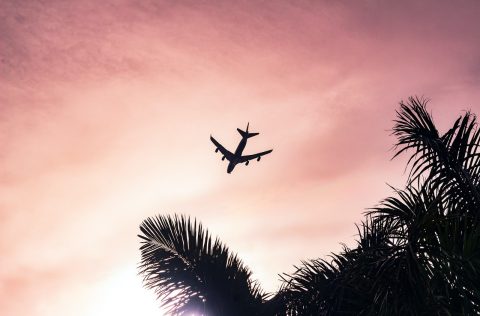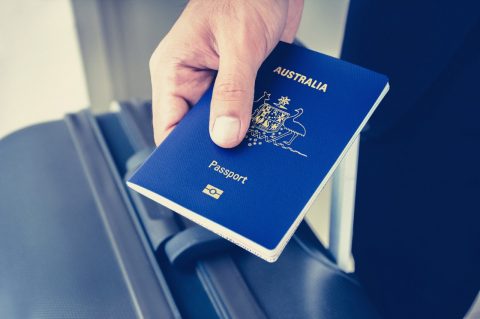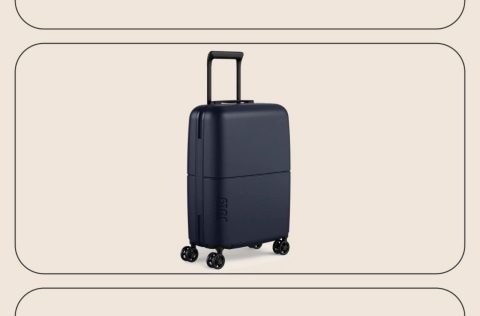How To Avoid Jet Lag on a Long-haul Flight
Falling asleep over breakfast or staring at the ceiling all night isn't an ideal way to start a big trip away. Follow these easy steps to be jet-lag-free.
Most people who have done a long-haul flight have experienced the result of super-fast international travel; the one that makes bedtime on the first day away feel like the finish line in a marathon. However, according to meditation expert and founder of meditation organisation 1 Giant Mind, Jonni Pollard, jet lag doesn’t have to be inevitable. Pollard says there are several elements necessary for reducing the effects of jet lag and, if you get them right, it will never darken your door – or under your eyes – again.
The basic principles seem almost too simple. Ensure you’re well-rested, organised and relaxed in the lead-up to your trip. Keep yourself well-hydrated before and during the flight. Protect and stimulate your digestion. Readjust your sleep schedule to the hours of your destination, and don’t sleep outside night-time hours. Sounds easier said than done? Here’s exactly how to do it.
Eat light
1/9Digestion can become sluggish when you’re not moving around. To keep things moving, take a ginger tablet before flying and if your destination is cold, take another when you land. When it comes to food, Pollard says to take it easy on the plane. To avoid any bloating, stick to warm, moist foods and avoid bread and crackers, cold desserts, soft drinks, alcohol and coffee where possible. (A tough ask when tired, of course!)
Image credit: Getty Images/Westend61
Exercise before your flight
2/9It's easy to skip your regular workout amid the busyness of preparing for a trip. But working up a sweat before a long journey will benefit you in the long run – research shows exercise improves sleep quality, which is important when you're nodding off in a new environment.
Image credit: Getty Images
Drink water
3/9To stay hydrated, Pollard says, he drinks three glasses of warm water before he gets on the plane, then drinks a glass of warm water or herbal ginger tea with lemon, every hour on the flight. “Avoid cold drinks and ice at all costs,” Pollard advises.
Pack a drink bottle to encourage you to keep sipping throughout the flight and refill it with the help of the flight's attendants periodically. This has the added bonus of forcing you to stretch your legs several times during your flight.
Sleep smart
4/9To prepare yourself for your new waking hours, it’s important to try to adjust your sleep schedule. “Set your watch to the time zone you’re heading into and meditate every two hours for 30 to 60 minutes – this is the golden secret,” Pollard says. “Only sleep within the sleeping hours of the time zone you are entering.”
Lighting in the Qantas cabins are designed to help you identify the right time for an inflight nap – when the lights dim, close your eyes. Alternatively, download apps such as Timeshifter and Entrain, which use data such as flight time, destination, heart rate and activity to calculate the best time for you to fall asleep.
Limit screen-time throughout the flight, as the blue light from your device can interrupt circadian rhythm and melatonin secretion, negatively affecting sleep quality.
Pack your carry-on carefully
5/9Set up your space in a way that's conducive to slumber. Pack a cashmere wrap if you know you get chilly, don noise-cancelling headphones if you find it difficult to drown out chatter and select the right neck pillow for the way you like to sleep. The cosier you can make your seat, the more restful your shut-eye will be.
Stretch regularly
6/9During the flight, try to stretch every few hours. “Simple postures such as leaning forward and letting your head and neck flop is enough to get blood to the brain and mobilise the lower spine,” says Pollard.
On arrival
7/9When you finally arrive, take a warm bath or shower and moisturise your skin, which could be dry from the plane. Meditate and make sure you drink lots of water – double what you’d usually consume. Pollard advises travellers not to nap – even if you’ve arrived in the morning and you're exhausted. Instead, he says, meditate sitting-up to rest, and once more in the early evening before dinner. Avoid alcohol and have an early night. “The result will be minimal to zero jet lag,” Pollard promises.
Take a breath
8/9Sometimes some simple changes to breathing can make all the difference to your nervous system and, more importantly, your ability to relax and rest. Meditation app Insight Timer has a program dedicated to jet lag mediation: just five minutes of concentrated relaxation could make all the difference.















